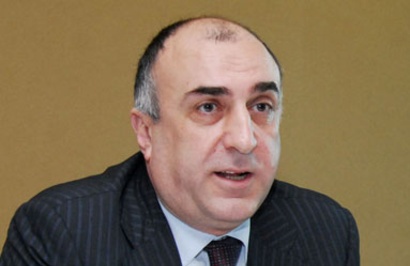Armenia, a destabilizing factor in Caucasus

By Sara Rajabova
Armenia's provocative demonstration of force undermines the potential to reach a peaceful solution to the Nagorno-Karabakh conflict, Azerbaijani Foreign Minister Elmar Mammadyarov believes.
“Azerbaijan has repeatedly stated that presence of Armenia’s armed forces on the occupied territories is major destabilizing factor with the potential for escalation at any time with unpredictable consequences,” he said while addressing the 21st OSCE Ministerial Council in Basel, Switzerland on December 4.
The ongoing occupation of Azerbaijan’s territory by Armenia poses a serious threat to international and regional peace and security, he added.
“Unfortunately, after recent presidential meetings of Armenian and Azerbaijani presidents in Russian resort city of Sochi, Newport city in Wales and last round of talks in Paris, the armed forces of Armenia held provocative large-scale military exercises on the occupied territories of Azerbaijan,” he stressed.
The Armenian armed forces began provocative large-scale military exercises in the occupied territories on November 6 with the involvement of about 47,000 soldiers and over 3,000 combat equipments and armament, as it was announced by the Armenian official media resources.
Noting the positive indications observed in those meetings, Mammadyarov stressed that such a provocative demonstration of force by Armenia absolutely does not correspond to the spirit of these talks, as well as the efforts of the OSCE Minsk Group co-chair countries’ leaders.
Mammadyarov further reminded that the OSCE Minsk Group co-chairs had already expressed their concern about this large-scale Armenian military exercise in the occupied Azerbaijani territory, which included huge number of military personal and equipment.
That kind of military exercises of Armenia must be assessed as attempts not only to hinder the mediation efforts to reach progress on the peace talks, but also to continue to consolidate the occupation of the territories, Mammadyarov added.
In their latest statement on December 4, heads of delegations of the OSCE Minsk Group co-chair countries said there is no military solution to the conflict and called on the parties to refrain from violence and work actively towards a lasting settlement. They expressed strong commitment for a peaceful resolution of the Nagorno-Karabakh conflict.
The statement by Russian Foreign Minister Sergei Lavrov, the U.S. Secretary of State John Kerry, and the French State Secretary for European Affairs Harlem Desir further said the negotiations on a comprehensive peace agreement under the auspices of the co-chair countries should begin as soon as possible.
Mammadyarov further went on to say the Armenian government must realize that reliance on the status-quo achieved as a result of military aggression by the use of force is a grave miscalculation.
He added that the occupation of Azerbaijan’s territories and ethnic cleansing of local population from homes of their origin does not represent a solution and will never produce a political outcome desired by Armenia.
“Withdrawal of Armenia’s troops can be a significant confidence building measure and will completely change the dynamic of the peace process and open up immense opportunities for comprehensive and sustainable development of the South Caucasus region,” Mammadyarov said.
He also stressed once again Azerbaijan’s readiness to start the work on drafting a peace agreement that was supported and urged by French President Francois Hollande at the Paris summit, as well as by Minsk Group co-chairs.
“All of us must encourage Armenia to seriously consider such an important initiative,” he said.
Mammadyarov further added that strengthening the OSCE mediation capacity shall be accompanied by a firm resistance to selective interpretation of the founding principles of the Helsinki Final Act and against the attempts to consolidate results of violations of internationally recognized borders of OSCE participating states.
Mammadyarov added that OSCE remains the unique instrument and platform enabling the participating states to find a common response to evolving challenges.
Besides, Azerbaijani foreign policy head urged relevant OSCE institutions to undertake serious efforts to restore the trust and to implement their respective mandates without double standards, geographical and other preferences.
“With full support for the issues of democracy building, regretfully, sometimes we see a lack of comprehensive and integral approach, double standards, breaches of mandates by some OSCE institutions and attempts to jeopardize stability and development of OSCE participating states under the pretext of human rights concerns,” Mammadyarov said.
Here we are to serve you with news right now. It does not cost much, but worth your attention.
Choose to support open, independent, quality journalism and subscribe on a monthly basis.
By subscribing to our online newspaper, you can have full digital access to all news, analysis, and much more.
You can also follow AzerNEWS on Twitter @AzerNewsAz or Facebook @AzerNewsNewspaper
Thank you!
